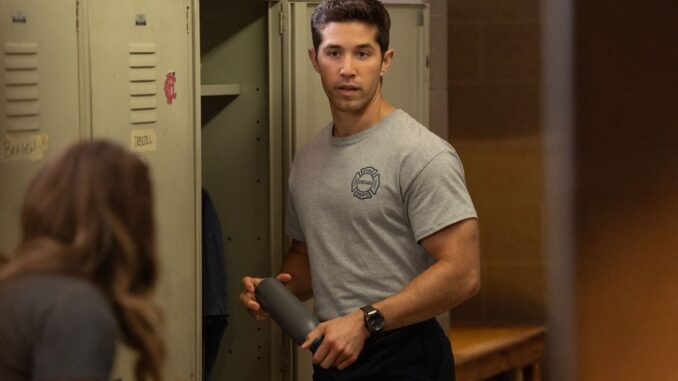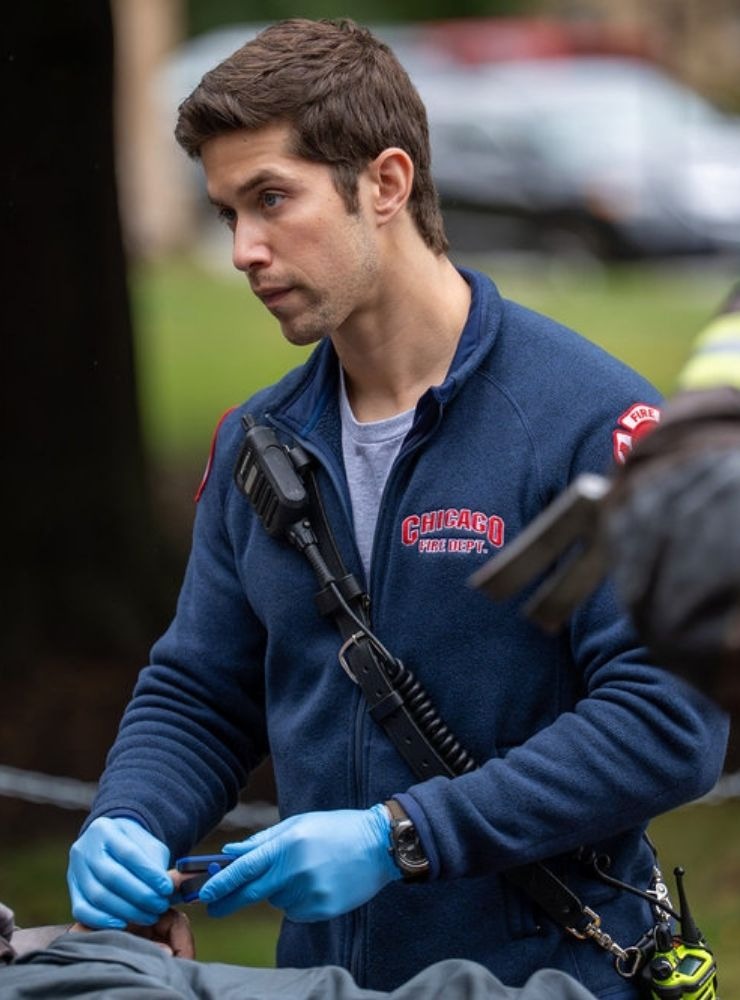
The Chicago Fire Season 14 fall finale moves on from some of the big plot points that the NBC show has been playing with so far. And it’s no surprise that it ends in a cliffhanger. But Chicago Fire has set its finale bar so high over the years that Season 14, Episode 7 is a pretty quiet midseason finale.
“Pierce the Vein” does see the welcome return of Kelly Severide the arson investigator. There’s a reason Severide puts his OFI hat on so regularly; it’s always really entertaining to see him in that position. Plus, it means getting to see actor Tim Hopper return as Captain Van Meter. This time, the duo look into a school fire that turns out to be a planned attack on the intensely disliked principal. Hopper and Taylor Kinney are in fine form here, and the last shot of the episode—that the arsonist is setting fire to the principal’s apartment building with him, Severide and Van Meter inside—is certainly a dramatic ending.
But here’s the thing: Chicago Fire has tried to kill Kelly Severide before a lot of times, and those predicaments have been a lot more intense. The end of “Pierce the Vein” pales in comparison to most of what Severide has been through, so it doesn’t generate the adrenaline rush that fans are used to from a Fire finale. That’s a compliment to what Derek Haas and Michael Brandt, and now Andrea Newman have been able to do all these years—it just means that the writers have to try that much harder to seriously scare the audience.
Elsewhere, hopefully the Sal Vasquez backstory stuff has come to an end, although it does in the worst way: his father Ray somehow gets paroled and shows up at Firehouse 51 to repossess his car. Since the viewer doesn’t see any of what happens here, this makes all the talk about Ray being desperate for parole seem hyperbolic, since he seems to have had little issue getting out of prison. But this episode is great for showing what potential Vasquez has as a character beyond his dad issues, so if this gets his father out of the way, then the convenience is forgiveable.

Speaking of Vasquez, one criticism of this Chicago Fire episode is that it may or may not be teasing a romantic subplot between him and Violet Mikami. Vasquez closes down Molly’s talking to Violet, and then asks her to go someplace else with him. But Vasquez doesn’t need to be in any romantic subplot when the character just got here and there’s still so much to explore with him individually. On top of that, Vasquez and Violet feels like a quick substitute for the Vasquez and Lizzie Novak flirtation, since Chicago Med is sticking with its awkward love triangle between Novak, John Frost and Naomi Howard. One weakness of the whole One Chicago franchise is that it rarely lets characters just be single, and all of this is an example of that.
Chicago Fire also officially moves on from the death of Pascal’s wife Monica, as he invites Annette Davis to have dinner at his house—which seems like a step that the show could have worked up to over a few episodes, not just a few scenes. But at least this pairing has major plot relevance, because Annette tips off Pascal that the city wants to permanently decomission Engine 51. It seems improbable to think about, yet that immediately opens up a massive dramatic plot point for Mouch, as well as the entire firehouse. Plus, with Dermot Mulroney not necessarily being in every episode and Annabeth Gish being a guest star, this is a pairing that doesn’t demand a lot of screen time. It can fit where it works best.
“PIerce the Vein” has some good things going for it, and some other things missing. The storyline about Novak’s sister Heidi turns out to be much less prominent or serious than the commercials indicated, but it is nice to be reminded of Novak’s serious side, since the character is usually so light-hearted. And even though viewers knew that Stella Kidd wouldn’t be in this episode, it still feels strange not to see Miranda Rae Mayo in a midseason finale. But all of the actors who are present give solid performances, and this episode does start clearing out old plot to make room for new stories—which is the functional point of having a fall finale. It’s a perfectly good episode, just standing somewhat in the shadow of Chicago Fire‘s own storied history.
